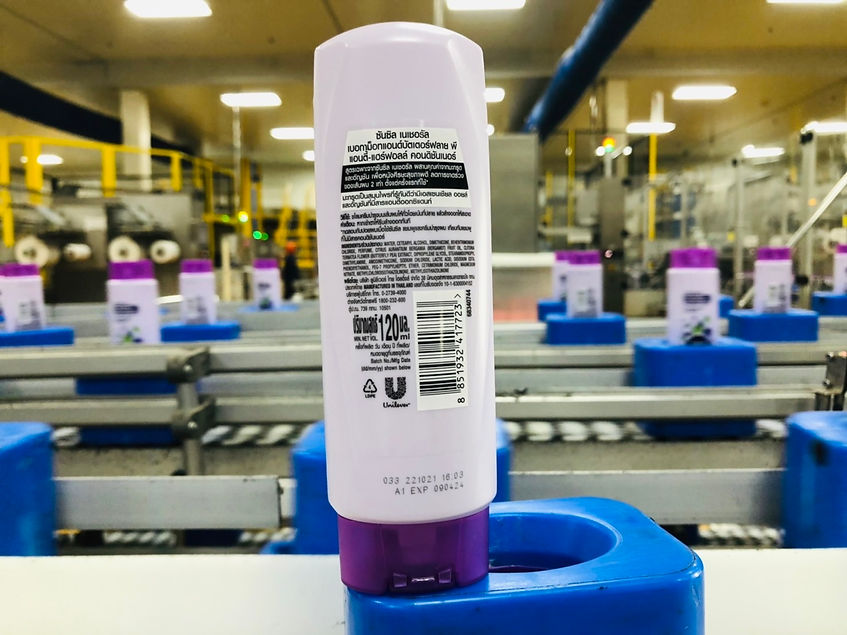

CASE STUDIES
Background
Unilever is a multinational consumer goods company with a rich history dating back to the 19th century. It was formed in 1929 by the merger of British soap maker Lever Brothers and Dutch margarine producer Margarine Unie. The company's headquarters are located at Unilever House in London, which serves as a global hub for its operations. Unilever offers a wide range of consumer products and services across various categories including food and beverages, home care, beauty, and personal care.
Unilever Thailand is a subsidiary of Unilever, a global company that operates in over 190 countries. Unilever has a strong presence in Thailand, offering a wide range of products across various categories, including food and beverages, home care, beauty, and personal care.
Notable Brands in Thailand
-
Dove: A brand known for its skincare and haircare products.
-
Knorr: A food brand offering bouillons, soups, seasonings, sauces, gravies, and noodles.
-
Lipton: A tea brand offering a variety of black, green, and herbal teas.
-
Magnum: An ice cream brand known for its luxurious chocolate-coated ice creams.
-
Lux: A beauty soap and body wash brand.
-
Sunsilk: A haircare brand offering shampoos and conditioners.
-
Wall’s: An ice cream brand offering a variety of flavors and products.
-
Clear: A haircare brand offering anti-dandruff shampoos and conditioners.
Sustainability Initiatives
Unilever Thailand is committed to sustainability and is involved in various initiatives to reduce environmental impact and promote social well-being. This includes efforts to reduce plastic waste, promote recycling, and create products that are environmentally friendly.
Social Impact
Unilever Thailand also engages in various social impact programs, focusing on areas like enhancing livelihoods, improving health and well-being, and reducing environmental impact. They work towards creating opportunities and empowering communities in Thailand.
Economic Impact
Unilever Thailand contributes significantly to the Thai economy by providing employment, contributing to the GDP, and engaging with local suppliers and businesses. They have a wide distribution network that ensures the availability of their products across the country.
Unilever Thailand, with its diverse product portfolio and commitment to sustainability and social impact, plays a significant role in the Thai market. They continue to innovate and adapt to the changing needs of consumers, ensuring they provide products that are not only of high quality but also environmentally friendly and socially responsible.
Exciting News from Unilever Thailand!
Transitioning from CIJ to Laser Marking Technology.
In our relentless pursuit to innovate and adapt, Unilever Thailand is thrilled to announce a pivotal shift in our production process!
After an in-depth study of our printing production dates, expiration dates, and lot numbers on packaging, we've identified several challenges with the Continuous Inkjet Printer (CIJ) technology:
-
High printing cost per piece
-
Inability to prevent counterfeiting
-
A work environment that could be cleaner and more efficient
Embracing Change with Laser Marking!
We're transitioning to Laser Marking technology, a cleaner, more cost-effective, and secure solution for printing on our packaging!
Benefits of Laser Marking
-
Lower cost per print
-
Enhanced anti-counterfeiting measures
-
A cleaner and more eco-friendly work environment
Stay tuned for more updates as we embark on this exciting journey towards innovation, sustainability, and enhanced product integrity!
Transitioning to Laser Marking: A Strategic Move by Unilever Thailand
Background: Unilever Thailand, a subsidiary of the global consumer goods giant, has always been at the forefront of adopting innovative technologies to enhance its production processes. The company recently identified several challenges with its existing Continuous Inkjet Printer (CIJ) technology, including high printing costs, inability to prevent counterfeiting, and maintaining a clean work environment.
Objective: To reduce production costs, enhance anti-counterfeiting measures, and promote a cleaner work environment by transitioning from CIJ to Laser Marking technology for printing production dates, expiration dates, and lot numbers on product packaging.
Challenges:
-
Cost: CIJ technology incurred high printing costs per piece.
-
Counterfeiting: The existing technology was unable to effectively prevent counterfeiting.
-
Work Environment: CIJ technology contributed to a less-than-ideal work environment.
Solution: Unilever Thailand adopted Laser Marking technology, which offers several advantages over CIJ:
-
Cost-Effective: Significantly reduces the cost per print.
-
Anti-Counterfeiting: Enhances the ability to prevent counterfeiting by providing clearer, more durable printing that is difficult to replicate.
-
Cleaner Work Environment: Eliminates ink usage, promoting a cleaner and more eco-friendly work environment.
Implementation:
-
Phase 1: Conducted pilot testing to evaluate the effectiveness and efficiency of Laser Marking technology.
-
Phase 2: Trained staff on the new technology and implemented it in select production lines.
-
Phase 3: Rolled out Laser Marking technology across all production lines after confirming its benefits and efficiency.
Outcome:
-
Reduced Costs: Achieved a notable reduction in printing costs per piece.
-
Enhanced Security: Strengthened anti-counterfeiting measures, ensuring product authenticity and brand integrity.
-
Improved Work Environment: Promoted a cleaner, safer, and more efficient work environment for employees.
Conclusion: Unilever Thailand’s strategic transition to Laser Marking technology underscores its commitment to innovation, cost-efficiency, and sustainability. This move not only enhances the company’s operational efficiency but also fortifies its stance against product counterfeiting, thereby safeguarding consumer trust and brand reputation.